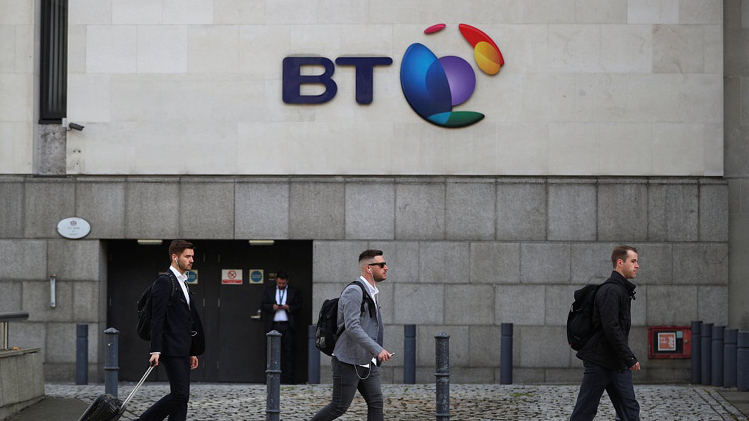
TV Show
20:23, 29-Jan-2019
BT becomes first foreign telecoms company to enter China’s SOE-dominated market
Updated
20:51, 29-Jan-2019
The Point with Liu Xin
00:44

BT, the British telecom giant, has become the first international telecoms company to provide Internet services directly to customers in China after being granted a nationwide operating license. The permit, issued by China's Ministry of Industry and Information Technology, has not only simplified the process for BT to deliver services to Chinese customers, but also enabled it to compete with China's state-owned telecoms firms.
This will "allow BT to provide services to domestic enterprises and customers,” and "introduce more competition into sectors that have previously been dominated by extremely strong producers," said Xu Sitao, chief economist of Deloitte China.
The China nationwide Domestic IP-VPN license and China nationwide Internet Service Provider (ISP) license were previously only granted to the three Chinese state-owned telecoms giants of China Mobile, China Telecom and China Unicom.
The telecommunication sector is one of the key areas the Chinese government has promised to keep opening up. According to the report “The Development Trend of Foreign-invested Telecom Enterprises (2018)" issued by the China Information and Communication Research Institute, by the end of 2018, a total of 121 foreign-invested telecommunications companies had been approved, a year-on-year increase of 39 percent.
Xu also noted that this move has an impact beyond the telecoms industry. When commenting on China's determination to open the domestic market to foreign companies, Xu stressed that it is about allowing those companies more access to the Chinese market, China's fulfilling its WTO obligations and taking liberalization and deregulation to a new level.
However, a foreign newcomer entering Chinese domestic telecoms market has raised many concerns. Many say that China fears direct competition in this area and is reluctant to break the monopoly of state-owned giants.
01:00

Regarding this, Wallace Cheng, a researcher at the German Development Institute said this deal is a "step-up," which benefits China's telecoms industry. According to Cheng, "competition brings expertise.” The three Chinese giants will have the opportunity to work with and learn from BT as a global company and increase their competency in the international market.
This deal is also a breakthrough for BT, which is undergoing some hard time as it plans to cut about 13,000 jobs over the next three years and move out of its central London headquarters to lower costs.
00:38

Mike Bastin, senior lecturer from the University of Southampton, commented that this deal means a lot for BT, "It (China) is a huge market and they (BT) have been desperate to internationalize," and getting this license is a "tremendous breakthrough" and "a first step towards much more."
He also emphasized that this deal signified a very positive and close working relationship between the Chinese and British governments, which is a very important step for the UK when facing Brexit.
(If you want to contribute and have specific expertise, please contact us at opinions@cgtn.com)

SITEMAP
Copyright © 2018 CGTN. Beijing ICP prepared NO.16065310-3
Copyright © 2018 CGTN. Beijing ICP prepared NO.16065310-3